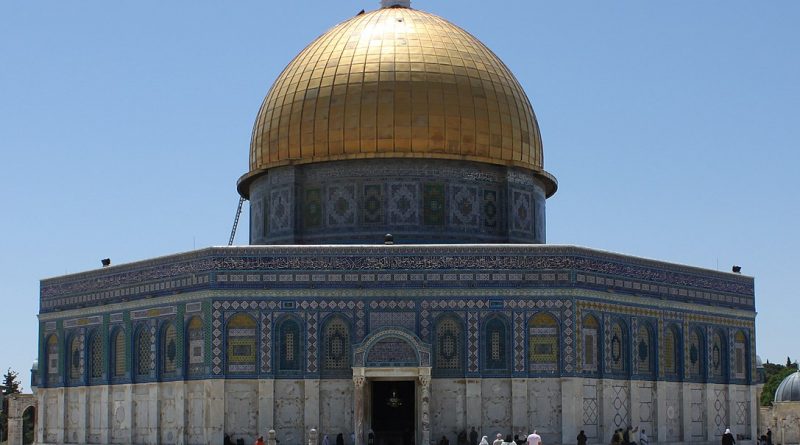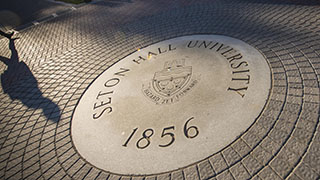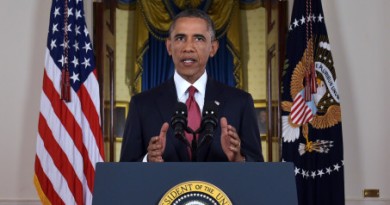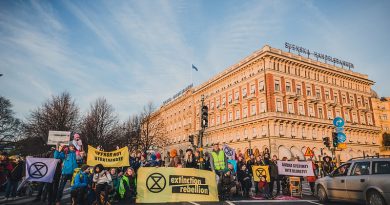The Inextricable Link Between al-Aqsa and a Palestinian State
Hamzah Khan
International News Editor
As the 27th night of Ramadan began on April 18, thousands of Palestinians from across the West Bank and East Jerusalem traveled to the al-Aqsa Mosque, the third holiest site in Islam, to commemorate Layla-tul-Qadr, considered by Muslims to be the holiest night of the year. Unlike most Muslims around the world, however, Palestinians are forced to endure humiliating checkpoint searches by Israeli Occupation Forces and are subject to arbitrary restrictions by Israel on who can even enter the mosque, reports the Associated Press. This is even more ironic given that al-Aqsa is supposedly under the control of the Jordanian government and Israel, as an occupying military power, has no jurisdiction over the mosque or East Jerusalem under international law, according to Amnesty International.
This is far from the worst that Muslim worshippers at al-Aqsa have faced this Ramadan, however. On April 4 and 5, Israeli forces stormed the al-Aqsa Mosque at night as worshippers were performing the Ramadan night ritual of I’tikaf, which Israel only allows during the last 10 nights of Ramadan. The soldiers were seen firing tear gas and beating worshippers, reports CNN. At least 12 people were injured during the Israeli raid and around 450 people were arrested, according to TIME. Israeli soldiers were also reported to have smashed windows and zip-tied worshippers. This latest Israeli desecration of the Holy Site referred to by Muslims as the Haram-al-Sharif, or noble sanctuary, is another grotesque expression of the apartheid reality Palestinians are forced to endure.
Due to the rise of the ultra-far-right government led by Benjamin Netanyahu and ministers who have called for the “wiping out” of Palestinians like Bezalel Smotrich and Itamar Ben Gvir, Palestinians fear that they are at risk of losing access to the al-Aqsa compound altogether, according to Al Jazeera. Under the current status quo, established after the Israeli occupation and annexation of East Jerusalem in 1967, the al-Aqsa Compound is controlled by the Jordanian-appointed Waqf Authority, and only Muslims are allowed to pray there, while non-Muslims may visit as tourists, reports Al Jazeera. Israeli ultranationalists have called for the status quo to be repealed so that Jews can once again pray at the site they call the Temple Mount, which is the holiest site in Judaism. Israeli officials even arrested individuals who were planning to carry out ancient Jewish rituals of animal sacrifice at the Temple Mount during Passover, reports the Times of Israel.
For Jews, the Temple Mount is the site of the ancient Jewish Temples of King David and is central to Judaism’s connection to the land of Israel. For Muslims, the al-Aqsa mosque is where the Prophet Muhammad is believed to have ascended to heaven and met with God, according to Middle East Eye. But beyond the religious importance of the site, Palestinians also view the al-Aqsa mosque and the Dome of the Rock as one of the most iconic symbols of Palestinian statehood. As the dream of a two-state solution becomes less viable day by day due to the illegal expansion of Israeli settlements, Palestinians hold on to the hope that as long as they can maintain sovereignty over one of the most recognizable landmarks of their state, the dream of sovereignty is still attainable.
Due to the delicate nature of the status quo agreement, al-Aqsa has often been a flashpoint in recent tensions between Israeli forces and Palestinians. After the latest Israeli incursion into the holy site, rockets were fired from Gaza, Lebanon, and Syria towards Israel, reports NPR.
In 2021, a similar raid on the al-Aqsa Mosque during the holy month of Ramadan led to an 11-day war between Israel and Hamas in Gaza, killing 260 Palestinians 66 of whom were children, reports Human Rights Watch. Even earlier, in 2000, the Second Intifada, or al-Aqsa Intifada, was sparked when Israeli Minister Ariel Sharon led a provocative visit to the al-Aqsa compound with hundreds of Israeli police officers, according to Foreign Policy. Throughout the Second Intifada, nearly 5,000 Palestinians were killed, including nearly 1,200 children. Israel’s brutal crackdown only led to further violence and increased militancy among Palestinian factions, particularly in Gaza.
Now, nearly a decade later, armed groups are popping up throughout the West Bank as experts believe a third intifada, or uprising, is on the horizon, according to Al Jazeera. 2022 was the deadliest year on record for Palestinians in the West Bank since the Second Intifada, with nearly 170 Palestinians killed, reports Al Jazeera. Sadly, 2023 looks on track to surpass that with 94 Palestinians already killed in the West Bank as of the beginning of April. As Israeli provocations and settlement expansions continue, Palestinians will cling to al-Aqsa as one of the few remaining semblances of Palestinian self-determination.
Image courtesy of Wikimedia Commons




